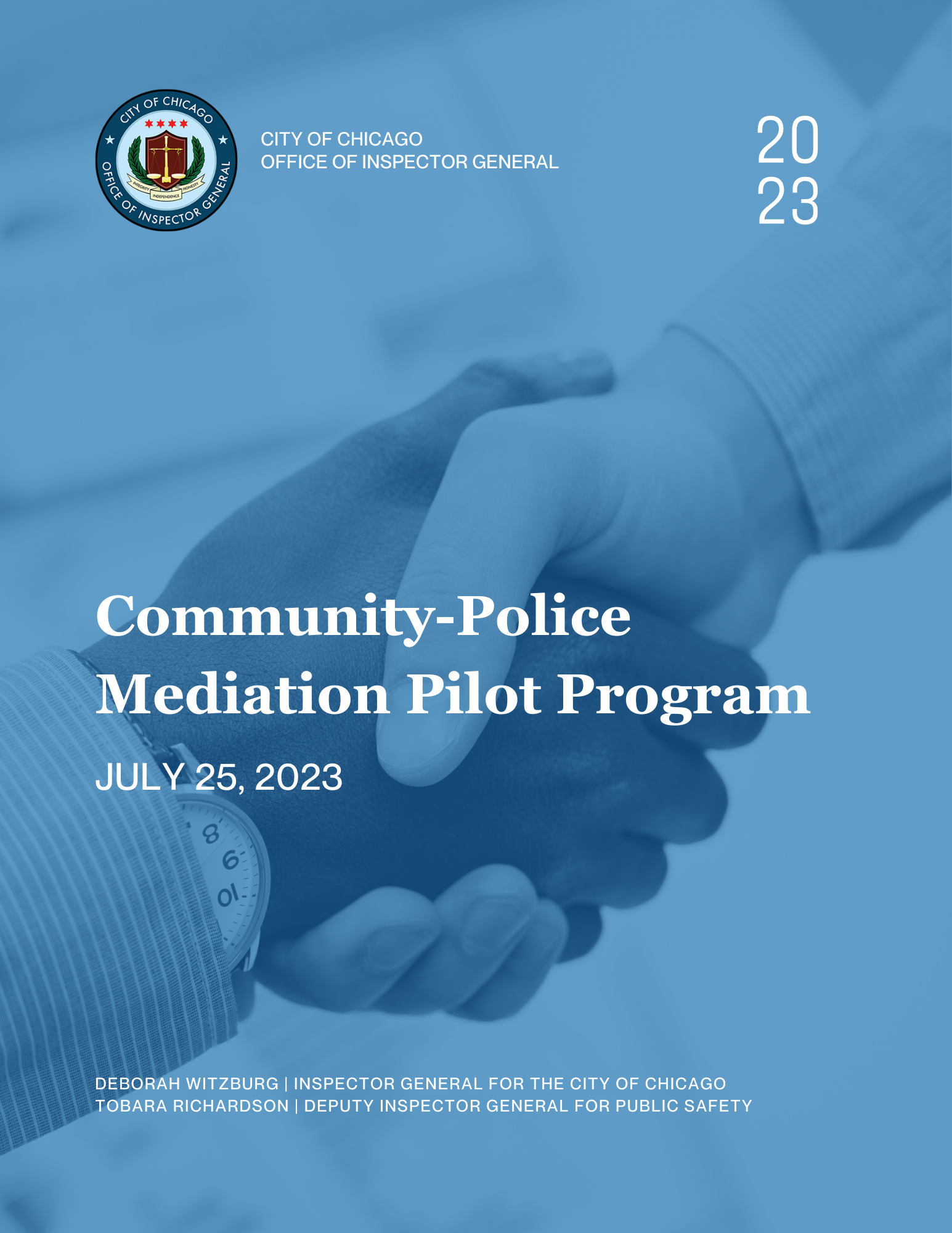Community-Police Mediation Pilot Program
Summary
The Public Safety section of the Office of Inspector General (OIG) has conducted an inquiry into the City of Chicago’s pilot non-disciplinary, complainant-involved mediation program for misconduct complaints against members of the Chicago Police Department made by members of the public.
Executive Summary
The pilot program began in October 2022 in response to a consent decree requirement, which mandates that the City “develop a new mediation policy governing the resolution of disciplinary actions by the agreement of the CPD member and non-CPD member complainant.”[1] The non-disciplinary, complainant-involved mediation pilot program, known as the community-police mediation program, as outlined in the consent decree is distinct from a historical process referred to as “mediation,” in which a CPD member accused of misconduct and the involved investigating agency might have reached an agreement as to the member’s acknowledged violation of rules or policies and the discipline to be imposed. OIG does not examine the previously existing disciplinary mediation process in this report, and instead examines the new community-police mediation program, which exists only in the form of a pilot as of May 2023.
Community-police mediation is a voluntary process where a community member and a member of the police department involved in a dispute meet, along with an impartial third-party mediator, or facilitator, to address the conflict.[2] The City’s development of the community-police mediation program follows a national trend toward police-community mediation as seen in cities such as New Orleans, Los Angeles, Denver, and New York City.[3] According to the National Association for Civilian Oversight of Law Enforcement (NACOLE), studies have shown that community-police mediation program participants were “more satisfied with the complaint resolution process than those involved in complaints subject to investigation” and were shown to help build understanding between a police department and its community.[4]
OIG acknowledges the pilot status of the non-disciplinary, community-police mediation program and that the outcomes reported here are preliminary and based on a limited time period and narrow pool of participating community members.
[1] Consent Decree at ¶510-12, State of Illinois v. City of Chicago, No. 17-cv-6260 (N.D. Ill., Jan. 31, 2019).
[2] Center for Conflict Resolution, “What is Mediation?,” About Mediation, accessed May 30, 2023, https://www.ccrchicago.org/about-mediation.
[3] CST Editorial Board, “Chicago is getting a mediation program for police misconduct complaints,” Chicago Sun-Times, October 9, 2022, accessed April 21, 2023, https://chicago.suntimes.com/2022/10/9/23392715/community-chicago-police-mediation-center-conflict-resolution-trust-editorial.
[4] Cameron McEllhiney, “Mediators’ Perspectives on Officer-Civilian Mediations,” 2020 NACOLE Webinar Series, March 17, 2020, accessed April 21, 2023, https://www.nacole.org/community_police_mediation_from_the_mediator_s_perspective.
Subscribe to the OIG Bulletin to get notified about future publications.

